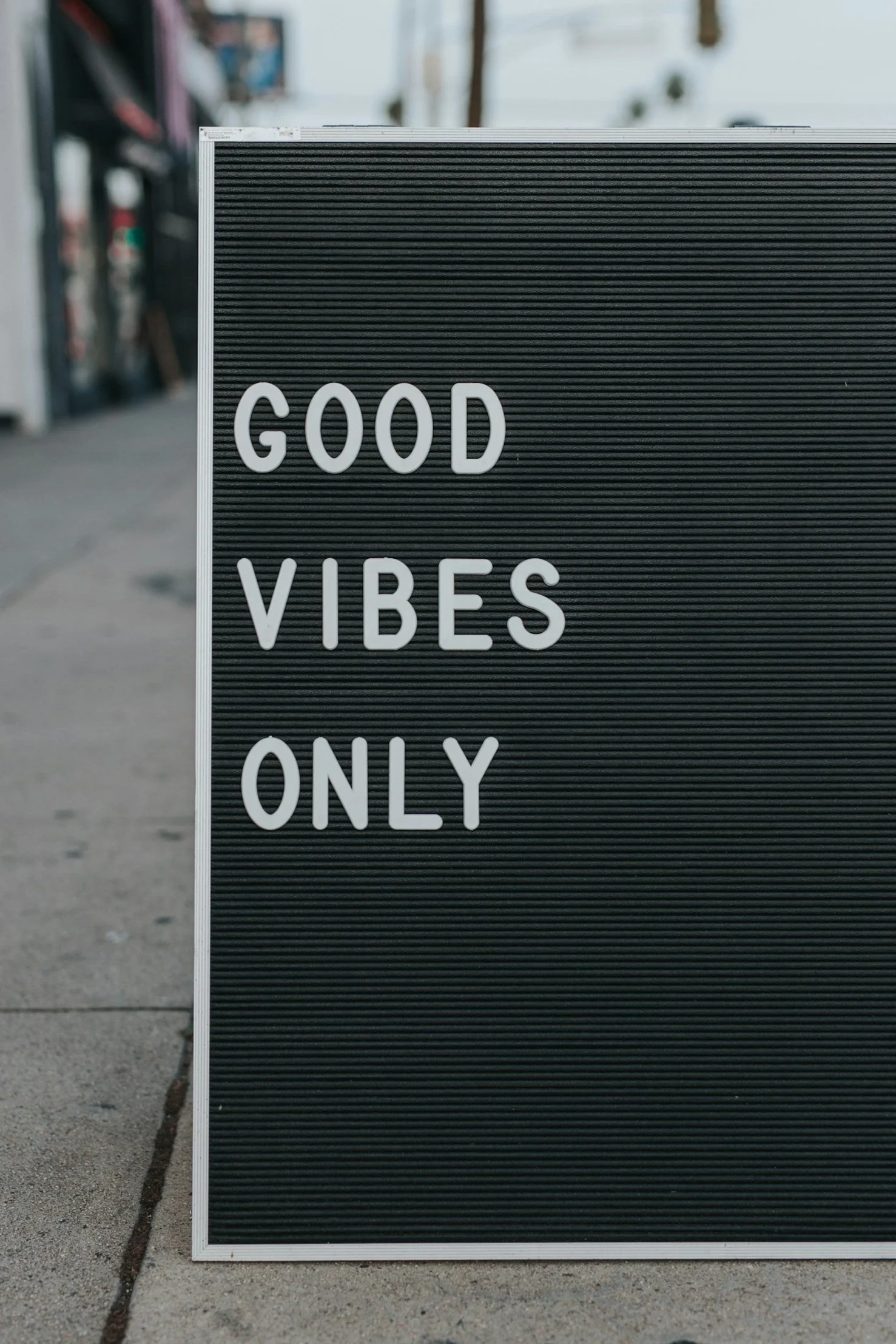Why Are We Always Chasing Happiness?
Understanding the Pressure to Be Happy and What It Really Means to Feel Content
We’re told happiness is the ultimate goal, but what if the pursuit of happiness is making us feel worse? Learn how to embrace the full range of emotions and find meaning beyond the pressure to “just be happy.”
The Pursuit of Happiness: Why It’s More Complicated Than We Think
From a young age, many of us are taught that the goal of life is to “be happy.” It’s in our commercials, our Instagram captions, our graduation speeches. But what if this constant chase is actually making us feel...worse?
We often hear clients say, “I should be happy right now, so why don’t I feel it?” Whether it’s after a promotion, a wedding, a baby, or a big life change, this gap between what we think we should feel and what we actually feel can create confusion, shame, and even anxiety.
Happiness is an Emotion. Not a Permanent State.
Despite what the self-help books and social media quotes say, happiness isn’t a destination or a constant. It’s an emotion, just like sadness, anger, fear, and joy meant to come and go.
We’re not wired to stay in one emotional state forever. That’s not a flaw but simply part of being human.
Let’s say you’ve been working hard for something like buying a house, getting engaged, or becoming a parent. You expected happiness to flood in and stay. But instead, you feel... overwhelmed? Anxious? Maybe even a little lost? That doesn’t mean something’s wrong with you. It means you’re human.
Happiness vs. Contentment: What’s the Difference?
We often confuse happiness with contentment, but they’re not the same:
Happiness is a fleeting emotional high like joy after a great day with friends.
Contentment is a quieter, more stable sense of ease or groundedness even when life is messy.
Contentment allows space for other emotions to exist. It says, “I can feel okay, even if everything isn’t perfect.”
The Role of Toxic Positivity
Sometimes, the messages around happiness become so intense that they tip into toxic positivity, which is the belief that we should only focus on the good and ignore or suppress anything that brings up less pleasant emotions.
This can sound like:
“You should just be grateful.”
“At least it’s not worse.”
“Why are you so upset? You have so much to be thankful for!”
While well-meaning, these messages - whether internal or external - can be incredibly invalidating. They don’t leave room for the full range of emotion, and they make it harder to process what’s actually going on beneath the surface.
Why We Feel Pressure to Be Happy Especially During Big Life Moments
There’s a strange irony in how life’s biggest milestones like weddings, new jobs, pregnancies, buying a home, etc. can also feel the heaviest emotionally. Why? Because we expect ourselves to feel only happiness. When we experience anything else, we panic.
“This is supposed to be the happiest time of my life. Why don’t I feel that way?”
You’re not alone. The pressure to be happy during “big” moments can make it hard to process real grief, loss, or fear, for instance, that’s also present.
Yes, you can be thrilled and grieving at the same time. Excited and terrified. Joyful and exhausted. Two things can be true and there is room for both emotions - even if they conflict.
Our Cultural Obsession with Happiness
We live in a culture that idealizes happiness. But when we glorify one emotion above all others, we can:
Minimize the value of other emotional experiences
Create shame when we’re not feeling happy
Miss out on the complexity of life
Happiness isn’t the only emotion that matters. And it isn’t a measure of whether you’re “doing life right.”
Why It Can Feel Scary to Be Happy
Here’s something you might not expect: happiness can be scary.
Sometimes when we finally feel joy or peace, fear creeps in:
“What if I lose this?”
“Do I even deserve to be this happy?”
“If I let myself feel good, I’m just waiting for the other shoe to drop.”
These reactions are often protective. Past experiences may have taught us that joy is fleeting or even dangerous. It’s okay if happiness doesn’t feel simple or safe at first.
So, What If We Stopped Chasing It?
Instead of chasing happiness as a goal, what if we focused on:
Building a life that feels meaningful
Cultivating moments of presence and connection
Allowing space for all emotions, not just the “positive” ones
Practicing self-compassion during hard seasons
Noticing contentment even in quiet, mundane moments
Letting go of the pressure to be constantly happy doesn’t mean you’re giving up. It means you’re allowing yourself to be fully alive.
You’re Allowed to Feel It All
There is no emotion that disqualifies you from being “okay.” You don’t have to prove your happiness to anyone. You don’t have to feel guilty for sadness, disappointment, or doubt even during a time others may expect you to be glowing. At The Therapy Group, we support clients in unpacking the pressures they feel around happiness and learning to trust the full emotional experience of life. If you're ready to dig into these patterns and feel more supported, schedule your free 15-minute consultation with The Therapy Group today.
For more on this topic, check out the ShrinkChicks Podcast episode: Why Do We Chase Happiness? hosted by our co-owners.




